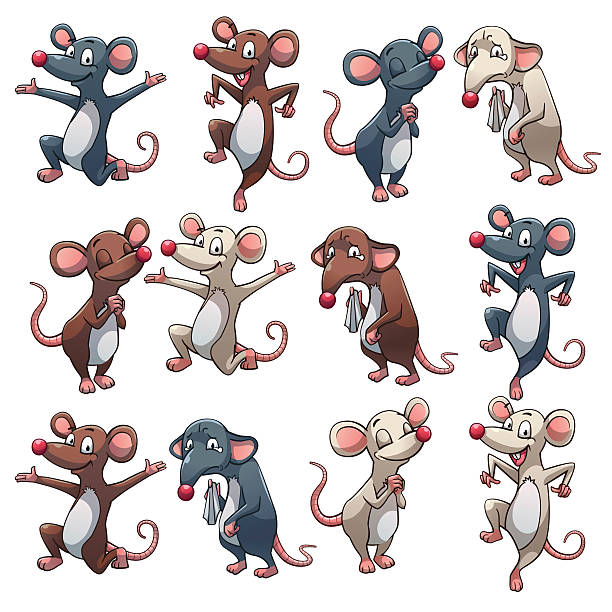I'm so exhausted after today's conference, I read that as a suggestion to have mice reproducing on the forum. The mind boggled.But there were concerns expressed about its reproducibility on the forum.

I'm so exhausted after today's conference, I read that as a suggestion to have mice reproducing on the forum. The mind boggled.But there were concerns expressed about its reproducibility on the forum.

The mind boggled.
Anna AschenbrennerI did like the presentation by the Bonn woman about the immune cell populations. She said that she didn't expect to find differences in the various immune cell populations in people who had had a Covid-19 infection, months after they had been ill. She was surprised to find there were. The finding of differences in monocytes and natural killer cells between people post-covid, with and without persisting symptoms, indicative of an inflammatory milieu in the LC group was one on the most convincing bits of Long Covid research I have seen lately. I think the work created a lot of research leads to follow. I think we've seen the paper for that research, I'll add a link later.
"And super provocatively, the other thing I would like to discuss is this image you see on the right. These are microclots inside skeletal muscle - and they are not inside capillaries. So they may not block [unclear] capillary flow."

Wow, this sounds like a psychotherapist who is fully on our teamBettina Grande - psychotherapist
Psychological support in ME/CFS
Acknowledges that psychotherapy doesn't cure ME/CFS, and it can be used to mobilise people, which can results in harm. The problem is most modalities result in activation.
Need to acknowledge ME/CFS is a physical disease, there needs to be understanding of PEM, and of pacing (managing activity levels to prevent and control crashes)
Therapy by video, even emails if necessary. Can help people to understand PEM, and their limits
Thanks. I think I may have nodded off to sleep in the last one - not the presenter's fault at all.Thank you so much for all these posts, @Hutan! Your efforts are very much appreciated
Yes, my impression was that she was fully on our team.Wow, this sounds like a psychotherapist who is fully on our team
To try to be fair, those unevidenced things which also included mindfulness adn naturopathy were on a list of groups they provide for those who want them and also included pacing as an option. His comment about them seemed to be that they are support groups, rather than making any claim about them being treatment.Luis Nacul - basically an extended ad for his Canadian clinic. He promoted a whole range of unevidenced therapies; they offer things like acupressure, some therapy called "Beneath the surface" - goodness knows what that is. He supports use of aripiprazole.
I thought it was interesting that the main use he specified was for reducing the effects of PEM, and he specified no more than 2 to 3 low doses a week, or if taking continuously, no more than 2-4 weeks.Benzodiapines - can decrease heart rate, stabilise mast cells, reduce sensory overload. Uses low dose lorazepam, use for max 2-4 weeks
I think that only came up as an answer to a question. He seemed pretty keen on trying one drug after another and different doses - all without any clinical trial evidence or any indication that he's proposing to do any trials.He seemed to be responsible, trialing removing the drug, to see if it is really helping.
It was interesting that she gave the comparison in knowledge of ME/CFS when assessed before a webinar that when the participants were volunteers, their preexisting knowledge of ME/CFS was pretty good, and when they made it a compulsory element of inservice training for hospital clinicians, their preexisting knowledge was much worse.What can we do - live webinar to increase health practitioners' knowledge about ME/CFS. Paper forthcoming on this.
Recommends more education in medical training
I think she's probably the only psychologist I've heard talk about ME who really gets it about the limitations of the role of psychotherapy in ME/CFS and the harm that can be done by inappropriate therapy. Her focus was on helping the patient with pacing and she emphasised how difficult pacing is and that the therapists role is to help the patient find ways to deal with barriers to pacing, not to tell the patient what to do. I hope she can spread the word among her profession.Bettina Grande - psychotherapist
Psychological support in ME/CFS
Acknowledges that psychotherapy doesn't cure ME/CFS, and it can be used to mobilise people, which can results in harm. The problem is most modalities result in activation.
Need to acknowledge ME/CFS is a physical disease, there needs to be understanding of PEM, and of pacing (managing activity levels to prevent and control crashes)
Therapy by video, even emails if necessary. Can help people to understand PEM, and their limits
